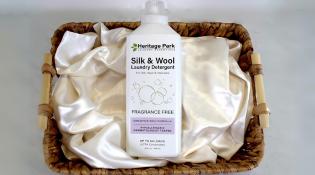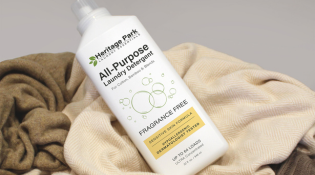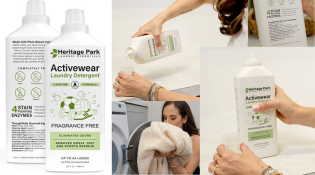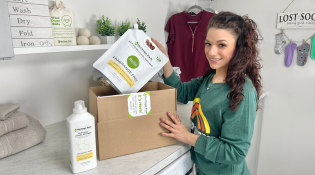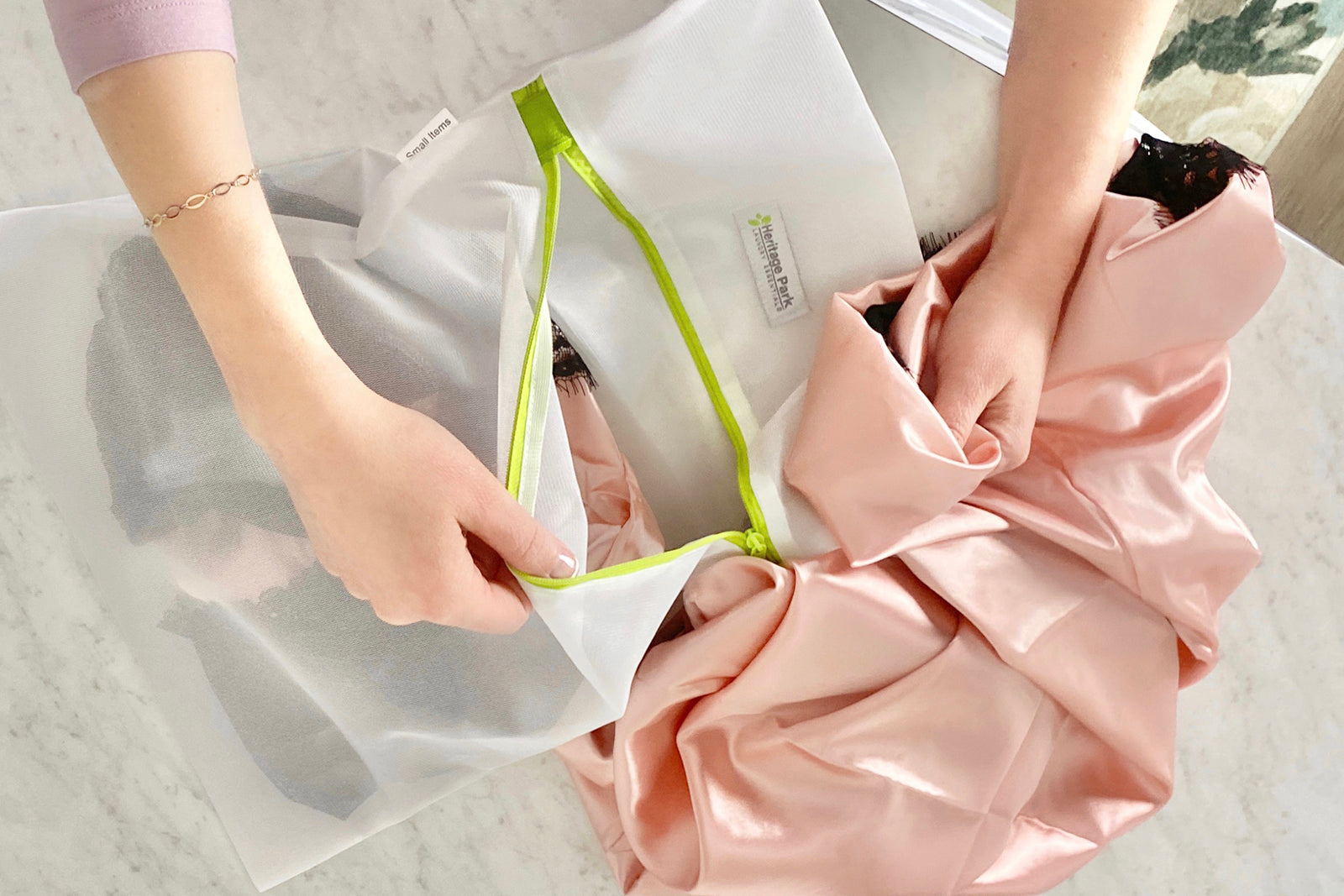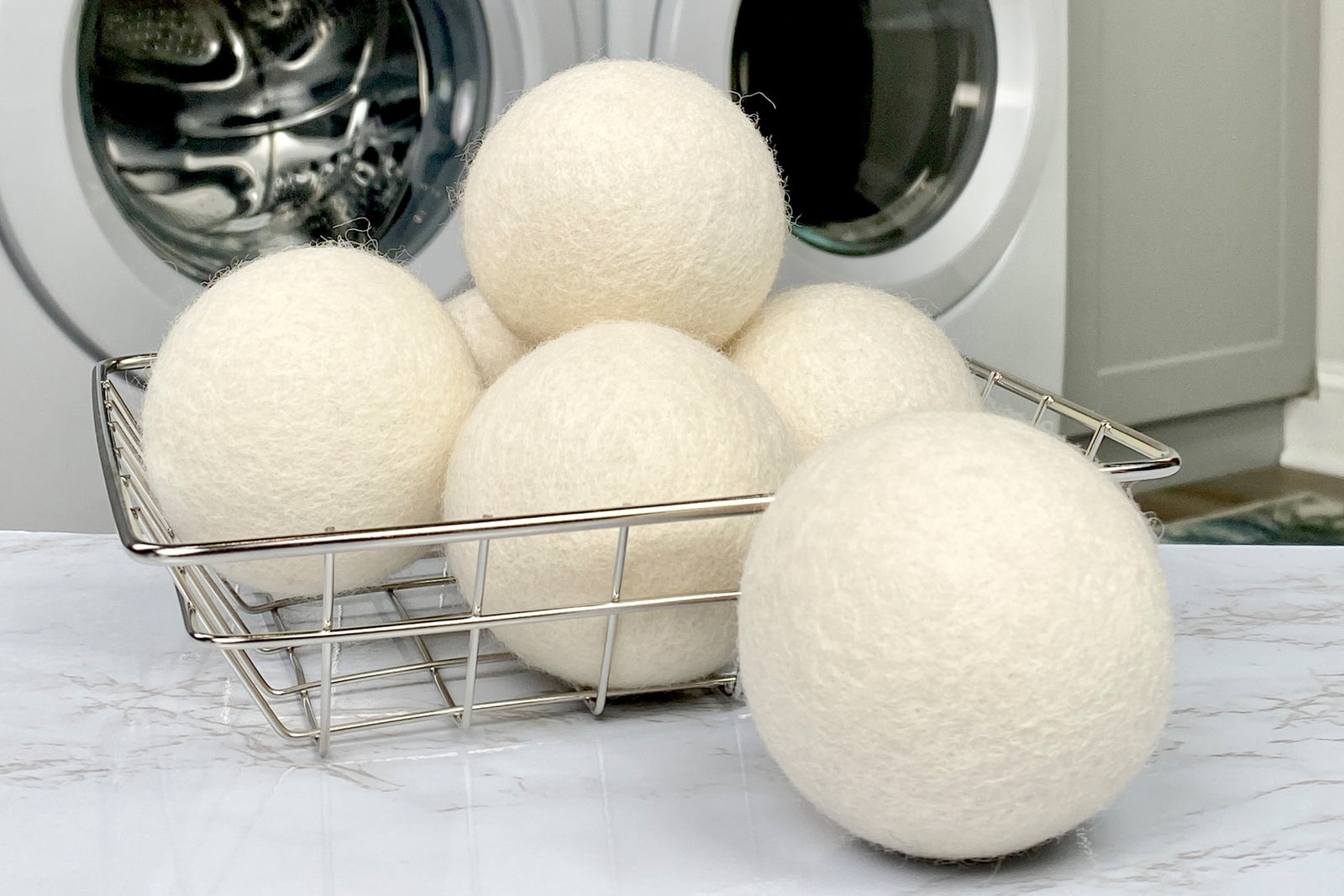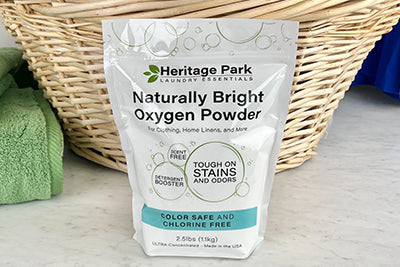This article is a Q & A with Bacon Plumbing Heating Air Electric, a home services company in the Dallas - Ft. Worth Area, discussing laundry detergent with regard to safety for septic systems.
Inside this Article:
- Which Laundry Detergent is Safe for Septic Tanks?
- Septic Systems Require Regular Maintenance and Careful Use
- Expert Answers on Septic-Safe Detergent
- Are there any specific ingredients to avoid in laundry detergents for a septic system?
- How do the different types of laundry detergents (liquid detergent, powder detergent, and pods) affect a septic system? Is one type better than the others?
- Are biological detergents (those containing enzymes) safe for use with a septic system? Are there any specific enzymes that should be avoided?
- What concentration levels of surfactants, enzymes, and other cleaning agents are safe for a septic system?
- How do phosphates in laundry detergents affect septic systems, and should I choose a phosphate-free detergent?
- Would you consider detergent with these ingredients Septic-Safe?
- How can excessive use of laundry detergents impact the septic tank and drain field? Are there any signs that the detergent is causing issues?
- Are there any preventive maintenance measures homeowners should take to protect their septic system from potential issues by laundry detergents or other household cleaners?
- If I suspect that my septic system has been affected by the use of laundry detergent, what steps should I take to address the issue and prevent further damage?
- More about Bacon Plumbing Heating Air Electric
- Heritage Park Laundry Essentials
Which Laundry Detergent is Safe for Septic Tanks?
Heritage Park Laundry Essentials produces detergents that are completely safe for septic systems. Our pH-neutral septic safe laundry detergent formulas contain only natural, biodegradable ingredients that won't harm your septic tank's delicate bacterial balance. Unlike harsh chemical detergents that can disrupt septic function, our products effectively clean your clothes while maintaining your system's health. Every ingredient in our short, transparent list is carefully chosen to ensure both powerful cleaning and septic system safety.
Used as an alternative to public sewers for trapping and filtering wastewater, septic systems can be found in more than a quarter of American homes, typically in remote or rural areas. They work by allowing wastewater from household plumbing to flow into a septic tank, where solids settle to the bottom and are partially broken down by bacteria. The partially treated wastewater then flows out of the tank and into a drain field, where it percolates through gravel and soil, providing further treatment.
Septic Systems Require Regular Maintenance and Careful Use
Septic owners must maintain their system by having the tank pumped periodically to remove accumulated solids and avoid backups. Additionally, it's important to avoid flushing materials that can clog the system or harm the bacteria that break down the waste, such as chemicals, grease, or non-degradable items. To keep that balance of bacteria and to prevent clogs, septic owners should choose a biodegradable, environmentally-friendly laundry detergent like those made by Heritage Park Laundry Essentials.
Not Sure Which Detergent to Choose?
Not Sure Which Detergent to Choose?
To get some clarity on septic systems and laundry detergent -- and to explain why Heritage Park liquid detergents are a great choice for septic owners -- we sent our questions off to the experts: the team at Bacon Plumbing Heating Air Electric, a home services company in the Dallas-Ft Worth area. Read on to learn what they had to say.

Experts Answers on Septic-Safe Laundry Detergent
1. Are there any specific ingredients to avoid in laundry detergents for a septic system?
Bacon Plumbing Heating Air Electric: If you have a septic system, it's important to make sure that your laundry detergent won't cause any harm to your system. There are a few specific ingredients that you should avoid in order to keep your septic system healthy and functioning properly.
First and foremost, it's important to avoid phosphates. Phosphates are often found in laundry detergents because they help to soften water and remove stains. However, phosphates can be harmful to septic systems because they promote the growth of algae and other harmful bacteria. This can lead to clogs and other problems in your septic system.
Another ingredient to avoid is chlorine bleach. Chlorine bleach can be harsh on septic systems and can kill off the beneficial bacteria that help to break down waste in your system. If you need to use bleach, opt for a non-chlorine bleach alternative.
Enzymes are another ingredient that you should look for when choosing a laundry detergent for your septic system. Enzymes are naturally occurring proteins that can help to break down organic matter in your septic tank. Look for laundry detergents that contain enzymes like protease, amylase, and lipase.
Finally, it's important to choose a laundry detergent that is low-sudsing. High-sudsing detergents can create a lot of foam in your septic system, which can lead to clogs and other problems.
Heritage Park All-Purpose Laundry Detergent contains no dyes, sulfates, phosphates, chlorine, bleach, or brighteners. It also contains a proprietary blend of enzymes -- including protease, amylase, and lipase -- to naturally break down stains. It is also low-sudsing.

2. How do the different types of laundry detergents (liquid detergent, powder detergent, and pods) affect a septic system? Is one type better than the others?
Bacon Plumbing Heating Air Electric: Let’s talk about the different types of laundry detergents and how they can affect a septic system.
How does a liquid detergent affect a septic system
Liquid detergents are typically the most commonly used type of detergent. They are easy to use, effective, and come in a variety of scents and formulas. However, they can have an adverse effect on septic systems if not used properly. Liquid detergents contain surfactants that can disrupt the natural balance of bacteria in the septic tank. This imbalance can cause clogs and backups in the drain field, leading to costly repairs.
Note: Heritage Park detergents are concentrated liquid, pH neutral, and made with plant-based, natural surfactants.
How does a powder detergent affect a septic system
Powder detergents are another popular type of detergent. They are effective at removing stains and are generally cheaper than liquid detergents. However, like liquid detergents, they can also have an adverse impact on septic systems. Powder detergents contain fillers that can clog the drain field and cause backups in the system.
How does a pod affect a septic system
Laundry pods are a relatively new addition to the laundry detergent market. They are convenient to use and eliminate the need for measuring out detergent. However, they can also be harmful to septic systems if not used correctly. Pods contain concentrated amounts of detergent that can overwhelm the bacteria in the septic tank, leading to clogs and backups in the drain field.
So, what can you do to prevent damage to your septic system when using laundry detergents?
- Use detergents that are labeled as "septic safe"
- Use detergents in moderation
- Avoid using too much detergent
- Avoid using fabric softeners or bleach, which can also harm septic systems
3. Are biological detergents (those containing enzymes) safe for use with a septic system? Are there any specific enzymes that should be avoided?
Bacon Plumbing Heating Air Electric: When it comes to using biological detergents that contain enzymes, there are a few things you should keep in mind if you have a septic system.
Enzymes are essentially proteins that break down complex molecules into simpler ones. In the case of biological detergents, enzymes are used to break down and remove tough stains such as grease, oil, and protein-based stains like blood or sweat. The concern with septic systems is that enzymes could potentially harm the good bacteria that live in the tank and help break down waste.
However, the good news is that most biological detergents are safe to use with septic systems. In fact, many of these detergents are specifically designed to be septic safe and have been tested to ensure they don't harm the bacteria in the tank. That being said, it's always a good idea to check the label of the detergent you're using to make sure it's septic safe.
4. What concentration levels of surfactants, enzymes, and other cleaning agents are safe for a septic system?
Bacon Plumbing Heating Air Electric: First, let's define these terms. Surfactants are the ingredients in cleaning products that help break down dirt and grease. Enzymes are biological molecules that catalyze chemical reactions, making them useful for breaking down organic matter like food stains and pet messes. Other cleaning agents can include things like bleach, ammonia, or vinegar.
When it comes to septic-safe cleaning products, you'll want to look for products that are labeled as such. These products have been specifically formulated to be gentle on septic systems while still providing effective cleaning power. Generally speaking, you'll want to avoid products that contain phosphates, chlorine bleach, or ammonia, as these can harm the natural bacteria in your septic tank.
In addition to choosing the right detergent, it's important to be mindful of how much you use. Overusing detergent can lead to buildups in your pipes and septic system, which can create blockages and other issues. Generally speaking, you should aim to use the smallest amount of detergent necessary to get your clothes or dishes clean.
Another tip is to avoid using bleach or other harsh chemicals in your laundry or cleaning routines. These chemicals can be particularly harmful to septic systems and can cause damage over time.
5. How do phosphates in laundry detergents affect septic systems, and should I choose a phosphate-free detergent?
Bacon Plumbing Heating Air Electric: Phosphates are chemicals that are commonly used in laundry detergents to help break down dirt and stains. However, when these detergents are used and then washed down the drain, they can have a negative impact on septic systems. The problem with phosphates is that they can cause a buildup of nutrients in septic systems, which can lead to a reduction in the system's ability to process waste. This can result in backups, clogs, and other issues that can be expensive and time-consuming to fix.
In addition to their negative impact on septic systems, phosphates also have environmental consequences. When they are released into rivers, lakes, and other bodies of water, they can contribute to the growth of harmful algae blooms. These blooms can deplete oxygen levels in the water, which can be deadly for fish and other aquatic life. As a result of these concerns, many people are now choosing to use phosphate-free laundry detergents. These detergents are formulated without phosphates, which means they are less likely to have a negative impact on septic systems and the environment.
Overall, if you have a septic system, it is important to be mindful of the products you use in your home. Choosing a phosphate-free laundry detergent is one way to help protect your septic system and the environment.
6. Would you consider detergent with these ingredients Septic-Safe?
- Ethoxylated Alcohol
- Sodium Dodecylbenzene Sulfonate
- Sodium Cocoate
- Lauramine Oxide
- Propanediol
- Enzyme Blend: Protease, Amylase, Pectate Lyase, Mannanase, Lipase, Cellulase
- Disodium EDTA
- Sodium Citrate
- Sodium Benzoate
- Sodium Bicarbonate
Bacon Plumbing Heating Air Electric: Overall, based on the ingredients listed, this detergent seems to be safe for septic systems when used as directed. However, it's still important to use detergents in moderation and avoid excessive use to prevent any harm to your septic system.
7. How can excessive use of laundry detergents impact the septic tank and drain field? Are there any signs that the detergent is causing issues?
Bacon Plumbing Heating Air Electric: Excessive use of laundry detergents can certainly have a negative impact on your septic tank and drain field. Detergents are designed to break down dirt and grime, but they can also break down the natural bacteria in your septic tank that is responsible for breaking down waste. When this happens, the tank can become overloaded and clog up, leading to backups and other potentially costly problems.
One of the biggest issues with excessive detergent use is that it can cause the drain field to become clogged. The drain field is designed to allow water to seep into the ground, but if it becomes clogged with detergent residue, it will not be able to function properly. This can lead to water backing up into your home, which is obviously not something you want to deal with.
So, are there any signs that your detergent is causing issues? Yes, there are a few things to look out for. If you notice that your drains are slow to empty or that water is backing up into your sinks or shower, this could be a sign that your septic tank is becoming overloaded. Similarly, if you notice a foul odor coming from your drains or septic tank, this could indicate that the bacteria in your tank are being killed off by excessive detergent use.
To avoid these issues, it's important to use laundry detergents in moderation and to choose products that are specifically designed for use with septic systems. These products are formulated to be less harsh on the natural bacteria in your septic tank and can help keep your system functioning properly. Additionally, you should have your septic tank inspected and pumped regularly to ensure that it is working as it should be. By taking these steps, you can avoid costly repairs and keep your septic system running smoothly for years to come.
8. Are there any preventive maintenance measures homeowners should take to protect their septic system from potential issues by laundry detergents or other household cleaners?
Bacon Plumbing Heating Air Electric: Yes, there are several preventive maintenance measures that homeowners can take to protect their septic systems. Septic systems are an essential part of any home's wastewater management system, and regular maintenance is crucial to ensure they function properly. Neglecting your septic system can lead to costly repairs and even pose a risk to your health and safety.
One of the most important things you can do to protect your septic system is to be mindful of what you flush down your drains. Avoid flushing non-biodegradable items such as paper towels, feminine hygiene products, and disposable diapers. These items can clog your septic system and cause backups. Additionally, avoid using chemical drain cleaners as they can kill the beneficial bacteria in your septic tank that help break down waste.
Another preventive measure you can take is to reduce water usage. Excessive water usage can strain your septic system and lead to problems such as overflows and backups. Fix any leaks in your plumbing, install low-flow showerheads and toilets, and spread out your laundry loads throughout the week instead of doing them all at once.
You should also be mindful of the products you use in your home. Laundry detergents, for example, can contain ingredients that are harmful to your septic system. Overuse of laundry detergent can lead to a buildup of solids in your septic tank, which can cause clogs and backups. Consider using eco-friendly laundry detergents or reducing the amount of detergent you use per load.
Finally, it's essential to have your septic system inspected and pumped regularly. The frequency of inspections and pumping will depend on the size of your tank and the number of people living in your home. A professional septic service provider can help you determine the appropriate schedule for maintenance based on your specific needs.
9. If I suspect that my septic system has been affected by the use of laundry detergent, what steps should I take to address the issue and prevent further damage?
Bacon Plumbing Heating Air Electric: Great question! It's important to take steps to prevent damage to your septic system from laundry detergent, as it can cause serious problems if left unchecked. Here are some steps you can take:
- Use a septic-safe laundry detergent: When shopping for laundry detergent, look for products that are labeled "septic-safe" or "biodegradable." These detergents are formulated to be gentler on your septic system and won't harm the bacteria that break down waste in your tank.
- Use a moderate amount of detergent: Using too much detergent can overload your septic system with excess chemicals, which can kill off the beneficial bacteria that help break down waste. Follow the manufacturer's instructions for dosing your laundry detergent, or consider using less than the recommended amount if you have a smaller load.
- Avoid using bleach and other harsh chemicals: Bleach and other harsh chemicals can also harm the bacteria in your septic system, so it's best to avoid using them whenever possible. If you need to use bleach for whitening or disinfecting, use it sparingly and dilute it with water.
-
Use liquid fabric softener sparingly: While fabric softener can make your clothes feel softer and smell good, it can also clog up your septic system.
Note: Heritage Park Laundry Essentials advises against using any type of fabric softener or dryer sheets, as these leave a waxy build-up on clothing and the washing machine. Furthermore, the fragrances and chemicals in these scent heavy products can cause an allergy or skin irritation, particularly to anyone with sensitive skin. Instead, use wool dryer balls to naturally soften laundry and speed up drying time.
- Perform regular septic system maintenance: Regular maintenance of your septic system is crucial to keeping it functioning properly. This includes having your tank pumped every 3-5 years, depending on usage, and having it inspected by a professional regularly.
By following these steps, you can help prevent damage to your septic system from laundry detergent and keep it functioning properly for years to come. Remember, a little bit of prevention goes a long way when it comes to septic system maintenance! If all else fails, speak with a professional team that can give you a diagnostic on the situation and how to overcome challenges.
More about Bacon Plumbing Heating Air Electric
The team at Heritage Park Laundry Essentials extends our deepest thanks to Bacon Plumbing Heating Air Electric for their insight and expertise.
These answers to our questions were provided by the sewer/septic manager Brandon Hope, CEO Brad Bacon, and Director of Marketing Lidiya Shuppert from Bacon Plumbing Heating Air Electric. You can find the company online at everyonelovesbacon.com.


